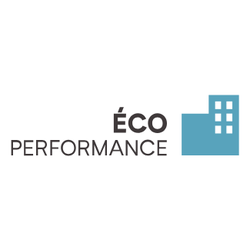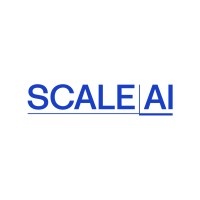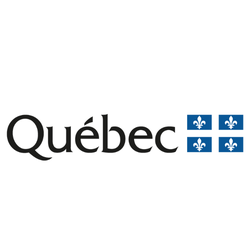
ÉcoPerformance — Standard Implementation stream
At a glance
- Maximum amount : 5,000,000 $
- Up to 75% of project cost
- Unspecified
- Manufacturing
- Quebec
- All legal structures
- All revenue ranges
- All organization sizes
- All groups
Overview
The grant offers financial support for projects focused on energy efficiency, energy conversion, and the reduction of fugitive emissions, with the maximum funding amount set at $5,000,000 per application and $10,000,000 per site annually. Eligible activities include the purchase and upgrade of equipment, engineering work, installation, commissioning, and related professional fees.
Activities funded
This grant provides financial support to organizations to carry out projects related to energy efficiency, energy conversion, and reduction of fugitive emissions. These projects exclude those transitioning to bioenergy, as these are covered under a separate Bioenergies program.
- Projects focusing on improving energy efficiency within organizations.
- Activities aimed at converting existing energy systems to more sustainable alternatives.
- Initiatives to reduce and manage fugitive emissions in various processes.
Eligibility
Eligibility for this grant is determined by specific requirements related to the type of consumer and the projects they intend to implement.
- Applicants must be classified as either "Grand consommateur" or "Petit et moyen consommateur," which includes industrial, commercial, and institutional categories.
- Projects must be aimed at energy efficiency, energy conversion, or reduction of fugitive emissions, excluding those for simplified implementation or bioenergy conversion.
- Projects must meet the specified Payback Period (PRI) minimum and maximum requirements for their category, which varies between 1 to 20 years depending on the type of consumer.
- Eligible expenses must fall under approved categories such as equipment purchase and upgrade costs, engineering work, installation, professional fees, and measuring and reporting costs.
- Conversion to another fossil energy source is not permitted for certain commercial, municipal, and institutional projects.
- Applicants with ISO 50001 certification may have specific cost-per-ton CO2e criteria.
Who is eligible?
Eligible applicants for this grant include organizations engaged in energy efficiency projects, energy conversion projects, and reduction of fugitive emissions. Specifically, the program is open to both large and small to medium consumers across industrial, commercial, and institutional sectors.
Eligible expenses
The grant covers specific expenses directly related to the acquisition and enhancement of equipment and the implementation of energy conversion projects.
- The cost of purchasing and upgrading equipment, including equipment required for energy consumption measurement.
- Engineering costs as defined under the applicable laws, covering various disciplines such as electrical, mechanical, hydraulic, and more.
- Installation costs.
- Commissioning costs.
- Professional fees.
- Calibration costs.
- Contribution fees that must be paid to the distributor to facilitate an energy conversion.
- Measurement costs and expenses for report drafting.
Eligible geographic areas
The grant program covers expenses directly associated with reducing greenhouse gas emissions and improving energy efficiency.
- Costs related to energy analysis and consulting services.
- Engineering costs for detailed project analysis or RCx reporting.
- Purchase and installation of energy-efficient or conversion equipment.
- Administrative costs capped at 5% of total eligible expenses.
- Technical and economic studies for conversion of energy sources, particularly in mining sectors.
- Certification costs for energy management systems, such as ISO 50001.
Selection criteria
EcoPerformance grants have evaluation and selection criteria that include:
- Demonstrated reduction in greenhouse gas emissions.
- Evidence of decreased fossil fuel consumption.
- Improvement in energy efficiency of processes and buildings.
- Reduction of fugitive emissions from processes.
How to apply
Initial submission
- Fill out the financial assistance application form with all required tabs completed.
- Sign and date the PDF form by an authorized signer.
- Provide the project plan and the monitoring plan signed by an engineer.
- Attach all other relevant documentation (technical data sheets, plans, etc.).
- Send these documents by email to: transitionenergetique.affaires@mern.gouv.qc.ca.
Initial assessment
- A program officer evaluates the complete application.
- Receive the date of precedence making the expenses eligible after this date.
Confirmation of eligibility
- Receive a document to confirm the terms of the financial aid agreement and fill in the required details.
- Be informed by email of the maximum financial aid amount granted.
- Receive and sign the financial aid agreement.
First payment request
- Provide the updated financial assistance application form with the required tab completed.
- Provide the updated monitoring plan if necessary.
- Provide the first purchase orders and authorized invoices.
- Receive the first payment corresponding to 25% of the financial assistance granted.
Interim report (optional)
- Provide the progress report signed by an engineer.
- Update the financial aid application form with the required tab completed.
- Update the monitoring plan if necessary.
- Provide the invoices and the statement of internal expenses.
- Receive the second payment after validation corresponding to 25% of the financial aid.
Implementation of the project
- Provide the commissioning report signed by an engineer.
- Update the financial aid application form with the required tab completed.
- Update the monitoring plan if necessary.
- Provide the invoices and the internal expense statement.
- Receive the third payment after validation corresponding to 25% or 50% of the financial aid.
Measurement of data
- Provide the project report signed by an engineer.
- Update the financial aid application form with the required tabs completed.
- Provide invoices and the internal expenses statement.
- Receive the fourth payment after validation of the maximum remaining financial aid.
Annual follow-up
Additional information
Here are additional relevant details for this grant:
- Updated guidelines require that all new applications use the revised forms effective October 3, 2023.
- The maximum financial assistance for standard energy analyses for large energy consumers has increased from $50,000 to $75,000.
- Projects must consider the increased allowable timeline for completion according to the new regulations.
- A new internal and external hourly rate update is reflected in the guidelines.
- An administrative cost cap has been set at 5% of eligible expenses.
- There is a 30-day administrative period for the submission of applications to facilitate orderly reception and eligibility verification.
- For the RCx component, measures must represent at least 5% of the site's energy consumption prior to the project.
- A maximum of $10,000 in financial assistance is available for companies obtaining ISO 50001 certification under the Energy Management component.
- The commercial-institutional bi-energy component (natural gas and electricity) has been added.
- Voluntary participants in the Cap-and-Trade System for Greenhouse Gas Emission Allowances (SPEDE) are now eligible under the Implementation of Large Industrial Projects component.
- Projects utilizing CO2 refrigeration systems for agro-food processes and food preservation on industrial sites are accepted, regardless of compressor power.
- Refrigeration projects with a decentralized reference scenario are not eligible for food preservation.
- Projects accepted between December 7, 2018, and March 31, 2024, under EcoPerformance or Bioenergies are not eligible for additional funding from the Low Carbon Economy Fund.
Contacts
Frequently Asked Questions about the ÉcoPerformance — Standard Implementation stream Program
What is the ÉcoPerformance — Standard Implementation stream?
How much funding can be received?
Who is eligible for the ÉcoPerformance — Standard Implementation stream program?
What expenses are eligible under ÉcoPerformance — Standard Implementation stream?
Who can I contact for more information about the ÉcoPerformance — Standard Implementation stream?
Where is the ÉcoPerformance — Standard Implementation stream available?
Is the ÉcoPerformance — Standard Implementation stream a grant, loan, or tax credit?
More programs like this

PSCE – Component 2
Investissement Québec (IQ)
MAPAQ — Food Processing Program — Component 2
Ministry of Agriculture, Fisheries and Food (MAPAQ)
SCALE AI — Acceleration
Scale AI Cluster
Research, Innovation and Commercialization Tax Credit (CRIC)
Gouvernement du Québec
Support for biofood exports - individual projects
Ministry of Agriculture, Fisheries and Food (MAPAQ)
ÉcoPerformance — Recommissioning of building mechanical systems
Gouvernement du Québec
Individual Market Access Support (SIAM)
Aliments du Québec
Panorama Program
Investissement Québec (IQ)
Financing to respond to the offensive of new tariffs and for initiatives for resilient and exporting companies (FRONTIERE)
Investissement Québec (IQ)